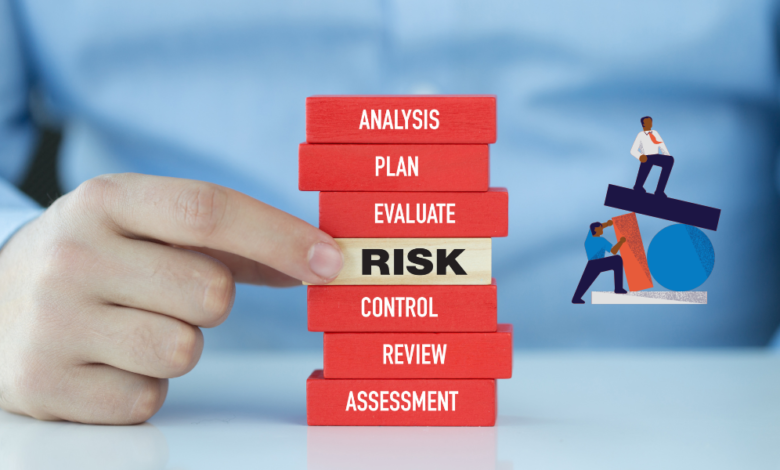
Artificial Intelligence (AI) has become a driving force in transforming governance, risk, and compliance (GRC) across various sectors, including finance, healthcare, and insurance. As regulatory landscapes become increasingly complex, the integration of AI offers unprecedented opportunities for organizations to automate compliance processes, anticipate emerging risks, and maintain operational resilience. However, the journey toward AI-driven GRC is not without its challenges. The ethical implications, regulatory scrutiny, and need for transparency require thoughtful implementation and oversight. With deep expertise in risk management and compliance, Sangeeta Rijhwani, a seasoned leader in GRC frameworks, provides valuable insights into how AI can revolutionize compliance and ensure adherence to evolving regulatory demands.
AI’s Role in Transforming Governance and Compliance
The traditional approach to governance and compliance has often been characterized by manual processes, periodic assessments, and reactive risk management. In contrast, AI-driven GRC systems enable continuous monitoring, real-time data analysis, and predictive capabilities that enhance decision-making. “AI allows us to move from a reactive stance to a proactive one,” says Sangeeta Rijhwani. “By leveraging predictive models, we can anticipate regulatory risks and mitigate them before they escalate.”
For instance, AI-powered tools can analyze vast amounts of data to detect patterns indicative of potential compliance violations. These insights enable organizations to take corrective actions promptly, reducing the likelihood of regulatory penalties. In the insurance sector, AI-driven GRC solutions have improved compliance rates and reduced operational inefficiencies. Sangeeta’s experience with implementing such tools underscores the transformative potential of AI in creating a more resilient compliance ecosystem.
Case Studies of AI Impacting GRC Practices
Several organizations have successfully integrated AI into their GRC practices, showcasing the tangible benefits of this technology. For example, HSBC has utilized AI-driven risk assessment tools to monitor global transactions, reducing false positives by 20% and improving detection accuracy. This level of precision is crucial for preventing financial crimes and ensuring compliance with international regulations.
At her company, Sangeeta Rijhwani led the implementation of automated controls using AI-driven GRC platforms, significantly enhancing data protection and compliance monitoring. “Automation minimizes human error and provides a consistent approach to managing complex regulatory requirements,” she notes. By streamlining risk assessments and automating repetitive tasks, Sangeeta’s initiatives have improved efficiency and allowed her team to focus on strategic risk management.
Ethical Considerations and Regulatory Challenges in AI-Driven GRC
While AI offers transformative potential, it also presents ethical challenges that organizations must address. Bias in AI algorithms, transparency in decision-making, and accountability for automated processes are critical concerns. “Ethical governance is not optional; it’s foundational,” emphasizes Sangeeta. “Organizations need to ensure that AI-driven systems are transparent, explainable, and aligned with ethical standards.”
Regulatory bodies worldwide are grappling with how to oversee AI implementations in critical sectors. Compliance frameworks must evolve to accommodate AI technologies, ensuring that they are used responsibly and do not inadvertently exacerbate biases or create unfair outcomes. Sangeeta’s work in aligning AI-driven GRC solutions with ethical principles and regulatory guidelines offers a blueprint for navigating these challenges.
Practical AI-Driven Solutions for Risk and Compliance Management
AI-driven solutions can enhance GRC practices in several ways, including real-time monitoring, predictive analytics, and automated controls. Continuous monitoring systems powered by AI can detect anomalies in data streams, alerting organizations to potential risks before they become critical issues. Predictive models can analyze historical data to forecast future risks, enabling organizations to allocate resources effectively.
Sangeeta highlights the importance of integrating AI solutions within existing GRC frameworks. “Technology should complement, not replace, human expertise,” she explains. Her approach involves using AI to automate routine tasks while leveraging human judgment for complex decision-making. For example, her work in developing automated controls management systems ensures consistent adherence to regulatory requirements while freeing up resources for strategic initiatives.
The Future of AI in Governance and Compliance
The future of AI in governance and compliance is poised for continued innovation. Emerging technologies, such as natural language processing and advanced machine learning models, hold the potential to further streamline compliance processes and enhance risk management. “The pace of change demands agile frameworks that can adapt to new challenges and technologies,” Sangeeta observes. She envisions a future where AI-driven compliance solutions are seamlessly integrated into organizational workflows, providing real-time insights and fostering a culture of proactive risk management.
As organizations navigate the complexities of AI adoption, they must remain vigilant in addressing ethical considerations, regulatory compliance, and operational challenges. By leveraging AI thoughtfully, companies can enhance their resilience, mitigate risks, and drive meaningful change in governance and compliance practices. Sangeeta Rijhwani’s contributions to AI-driven GRC frameworks offer a compelling example of how technology can be harnessed to meet and exceed regulatory demands, ensuring a secure and resilient future for the industries it serves.
Author
-
David Kepler is a News Contributor and Tech Author with a keen focus on cloud computing, AI-driven solutions, and future technologies reshaping industries worldwide. A passionate storyteller with an eye for global trends, he delves into the ways digital transformation initiatives are redefining business operations and consumer experiences across continents. Through his articles, David aims to spotlight groundbreaking innovations and offer clear, comprehensive insight into the rapidly evolving tech landscape.
View all posts Tech Author and News Contributor

